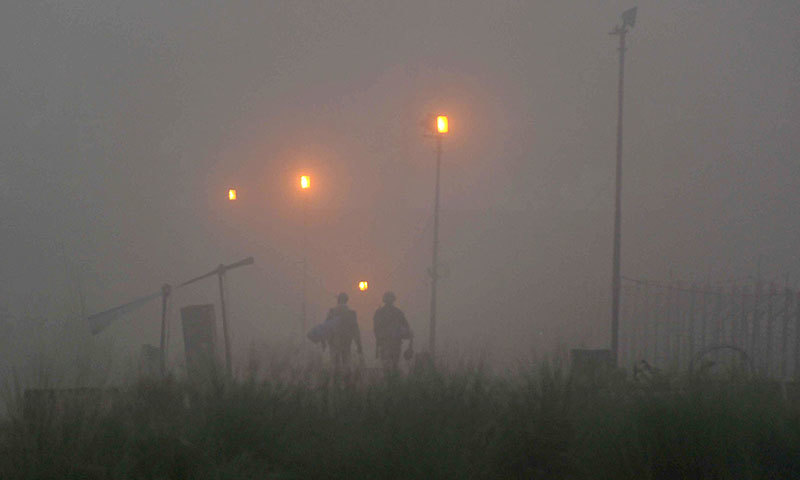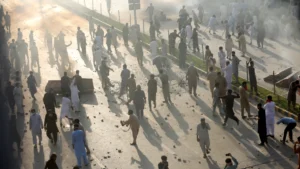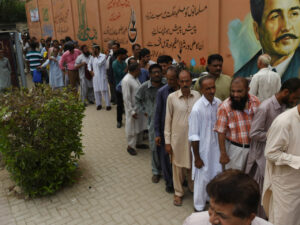In a recent article in an Indian daily, titled “’Qatal ki Raat’: How PM Modi Declined Imran Khan’s Midnight Call,” the narrative appears to proffer a snapshot of India’s coercive tactics viz a viz Pakistan’s alleged terrified response. However, it is equally prudent to give a balanced perspective on that article reflecting Pakistan’s responsible role in sustaining regional peace during the escalation of February 2019.
The piece emphasizes the reported threat of nine Indian missiles pointed towards Pakistan in pursuance of coercive objective. Contrarily, Pakistan’s measured response and choice to engage in diplomatic engagement exhibit a desire to prevent further escalation. Amid souring tensions, Pakistan attempted to de-escalate by facilitating negotiations between Prime Minister Imran Khan and his Indian counterpart, Narendra Modi. Contrary to popular belief, the decision to release Abhinandan Varthaman, the captured Indian pilot, was taken as a peace gesture.
The world, at large, praised this initiative with Western dignitaries appreciating Pakistan’s sincere efforts to de-escalate. Furthermore, the said article talks about Pulwama dossier and Pakistan’s commitment to solving the issue of terrorism. Pakistan’s readiness to behave responsibly and collaborate on counter-terrorism activities is an important step towards promoting regional peace. Meeting with international envoys to address India’s demands demonstrates Pakistan’s commitment to facilitating communication.
In a symbolic gesture of peace, Pakistan not only engaged in diplomatic efforts but also presented the Indian pilot with a hot cup of tea as an expression of goodwill, which he later termed as “Fantastic”. This step demonstrates Pakistan’s resolve to de-escalate while conveying a message of peaceful co-existence. The story published by “The Times of India” suggests a shift in Pakistan’s attitude toward proxy terrorism. It, however, remains critical to recognize the role of communication and diplomatic channels in resolving difficult situations.
Pakistan’s decision to shift its approach away from proxy terror, as evidenced by dialogue with Western diplomats, reflects on its commitment to regional peace and stability. In addition to the discussion, it is important to look into India’s historical pattern of launching fake operations against Pakistan prior to its election campaigns. Over-dramatization of issues by India, manifested in the recent remarks by Deputy Union Minister on Kashmir, demonstrates a proclivity to manipulate public emotions for political purposes. This is no different from the circumstances that led to Pulwama in 2019.
The Indian Government claimed that their Air Force had killed over 300 terrorists but Pakistan and several international media outlets, who visited the site, refuted the claim. It turned out that there were no deaths or injuries and that the arsenal had completely missed their intended target, which was a regular religious school for village children rather than a terrorist camp as wrongfully projected. When an Indian aircraft dropped its load near a hillside, it triumphantly was able to kill one crow, while damaging numerous pine trees as a pride of performance of the IAF.
Prime Minister of Pakistan on the other hand, expressed his worries and emphasized that he cared deeply for the trees. The world community expressed alarm over the rising tensions between India and Pakistan, urging calm and diplomacy. The United States, China, and Russia all pleaded for restraint. United Nations Security Council met behind closed doors to lessen the temperature. European Union also urged involved parties to exhibit patience and seek out diplomatic solutions. China, Pakistan’s closest friend, also urged “restraint and cooperation” and offered to mediate between the two arch rivals.
It is worth noting here that Prime Minister Modi remained silent on providing tangible proof to back up his claims. This silence casts doubt on the reliability of his assertions made during election campaigns, emphasizing the significance of competent leadership in avoiding potential disputes. Finally, it is critical to acknowledge Pakistan’s prudent response to the issues that arose following the Pulwama attack. Pakistan has shown a commitment to regional stability by initiating diplomatic discussions, releasing the arrested pilot as a peace gesture, and resolving counter-terrorism concerns. The focus should now move to constructive engagement and confidence-building measures to pave way for long-term peace.
Sara Nazir is an Islamabad-based researcher with a background in Strategic Studies & area of interest is non-traditional warfare. She can be reached on saranazeer2@gmail.com & @SaraNazir13 (on X).




